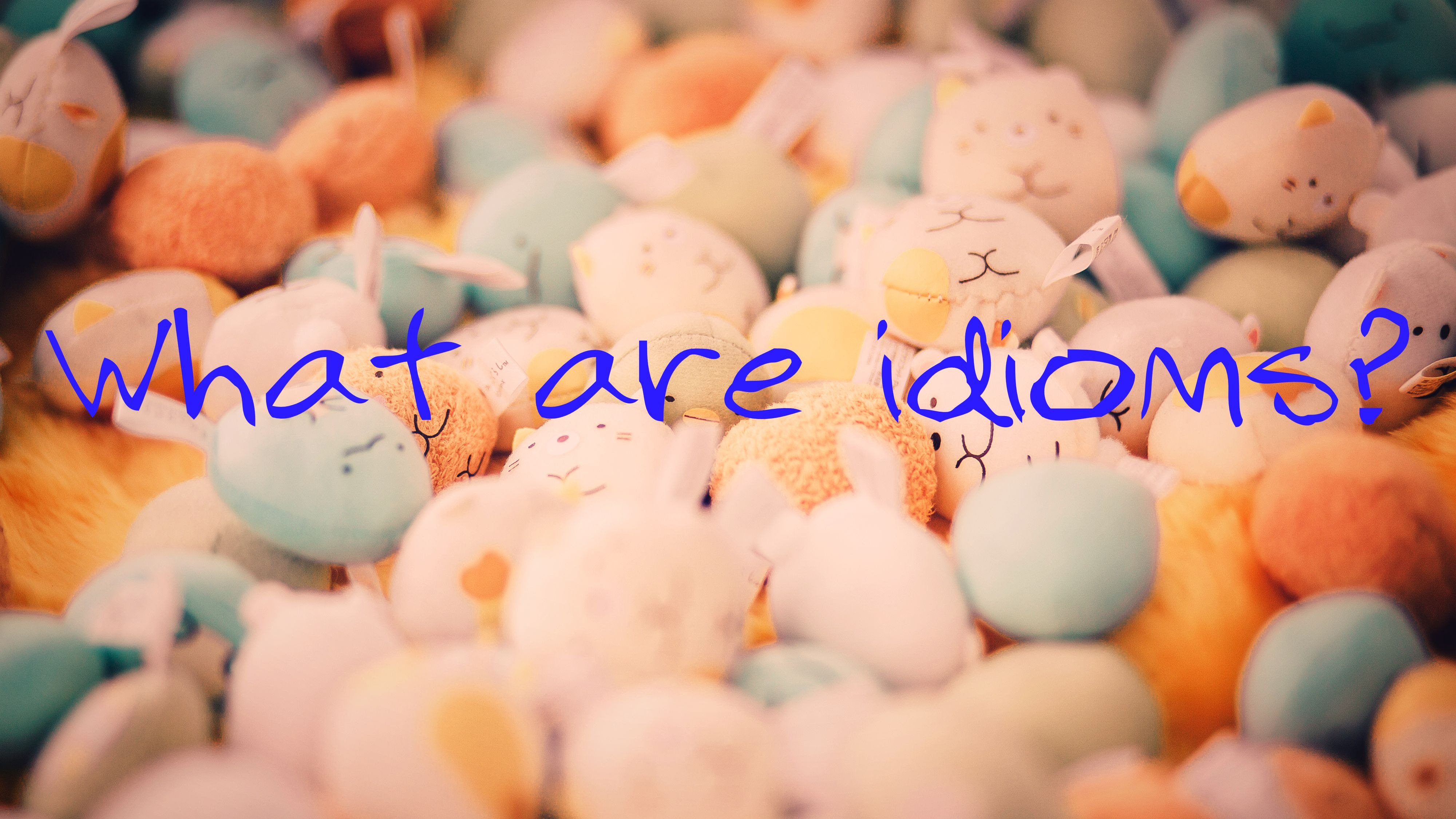TOEFLitis

Do you suffer from TOEFLitis?
In my years as a teacher, I have encountered many students with a bad case of TOEFLitis.
They live their lives with TOEFL hanging over their heads like a big black cloud, sucking away all their joy and pleasure in life.
They’re like airplanes in a holding pattern, endlessly circling the same airport, unable to land. They take TOEFL multiple times … several times a month, many times a year. Their careers or life goals depend on a certain score, which seems to hover like a mirage in front of them … when they approach it, it disappears, or recedes even farther beyond the horizon.
They study for the test for hours each day, but feel they’re merely spinning their wheels, going nowhere. Maybe once they were positive, confident people, but now they are assailed by feelings of doubt and even hopelessness, seeing themselves as failures and lost causes.
Is there a cure for TOEFLitis? Perhaps not a complete cure, but I believe there are ways to combat these symptoms.
Spend time thinking about your life beyond TOEFL. Sometimes people get so caught up in achieving a particular TOEFL score, they forget why they’re even studying English. They are so focused on THE SCORE, they ignore why they need to improve their English in the first place.
Perhaps you need a certain speaking score to be licensed as a pharmacist. What kinds of interactions will you engage in once you start working? Imagine being behind the counter talking to a young mother who is concerned about the possible side effects of her child’s prescription. How would you help to reassure her, to give her accurate information, to answer her questions fully even while other clients are impatiently standing behind her in line?
What if your TOEFL score is your entrée to a demanding academic program? You’ll be encountering complex texts written for native English speakers. You’ll be attending lectures where professors are speaking quickly, idiomatically, perhaps even with a non-standard accent. You may need to engage in complicated group projects with your fellow students, or write a 10-page research paper using multiple outside sources, or give a lengthy presentation in front of the class.
Is your English up to these challenges? Beyond the TOEFL and your goal score, you will be putting your English to the test in multiple ways. TOEFL is just a (less than perfect) way to assess whether you’re ready for them.
Identify your weaknesses and find creative ways to strengthen them. Too many students spend most if not all of their time “studying for TOEFL” … using TOEFL study guides, TOEFL YouTube videos, TOEFL websites, TOEFL prep programs. Not only is this exceedingly boring and tedious, but it may not be terribly effective. (If it’s really that effective, why don’t they get the score they need when they first take the test?)
Although TOEFL has four separate sections – reading, listening, speaking, writing – it’s also an integrated test, meaning that whatever you study will help your overall performance. If you master a new vocabulary word, for example, you may see it in the reading section, hear it in the listening section, or use it in the speaking or writing sections. Any effort you make to improve your overall English fluency can help raise your score.
There may be a particular skill you struggle with, or a particular section of the test that you need to score well in. I would still recommend that you pull away from the standard TOEFL training materials and find a variety of more engaging, enjoyable ways to improve your skills.
Need a higher speaking score? Find a conversation group or online partner or teacher to converse with. If you live in an English-speaking country, look into volunteer jobs, parent-teacher organizations, or book discussion groups.
Does your writing need help? Instead of writing endless TOEFL essays, try keeping a journal or blog. Or read interesting articles (I love The New York Times, The Economist, and The Atlantic Monthly) and study their organization, style, word use, and expressions. Try writing your own texts closely following these models.
Instead of listening to endless TOEFL lectures (surely the most boring lectures known to humankind), subscribe to The Great Courses Plus. Or find some good podcasts broadcast to native English speakers.
Same with reading. Find authentic English texts rather than TOEFL practice reading material (also exceedingly boring). Work on your vocabulary with a fun learning app. Make a study of Latin and Greek roots (this is something many American high school students do to score higher on college entrance exams).
Take breaks and don’t put your life “on hold.” TOEFL burnout is real. An endless round of study, study, study will suck the joy out of living. Eat well. Exercise. Get the sleep you need. Pay attention to your loved ones. Take trips and vacations. Enjoy the moment. Practice mindfulness. Engage in the religious beliefs and practices that are important to you.
I have known students who have said, “After I pass the TOEFL, I’ll spend more time with my kids.” Or, “I’ve put on weight, I’ve been studying so much. After I pass, I’ll go on a diet.” Or, “I can’t enjoy anything because I’m always worried about TOEFL.”
Well, that’s just sad. It’s not the way it’s supposed to be. You owe it to yourself and to your loved ones to enjoy the life you’re living right now. For everyone’s sake, think about ways that you can overcome your TOEFLitis and free yourself to take pleasure in everything that the world has to offer.
Learning idioms

In my last article, I talked about what idioms are, and aren’t. How many idioms are there in English? Some estimate that there are 25,000!
With so many idioms, you may feel overwhelmed at the prospect of learning them … and of course, you will probably never know them all, or need to!
My suggestion for learning idioms is to take it slow and make it fun. Don’t try to memorize boring lists of idioms from a textbook or website. Go on a never-ending “idiom hunt,” keep an “idiom notebook,” use visualization, discover origins of idioms, and work on slowly incorporating idioms into your vocabulary.
First, how do you “hunt” idioms? In my opinion, the best way to find new, unfamiliar idioms is to read non-academic texts like internet articles or popular books and listen to native English speakers (either “in person” or on a podcast, in a lecture, or on a YouTube channel). Encounter idioms in their natural environment … in the places where you are likely to go. This also helps ensure that you select idioms that are currently popular.
For example, many of my students are familiar with the idiom, “raining cats and dogs.” And that is an English idiom but, in my opinion, not one that is used much in day-to-day conversation. It’s more likely an American will just say that it’s “pouring.”
Once you find an idiom, you should have a place to store it. With an “idiom notebook,” you can collect idioms to memorize and review when you get a chance. Quizlet is a good choice, but you can also use a paper notebook, a document on your computer, or anywhere else that’s convenient and accessible.
You might also want to classify the idioms you collect into categories. For example, you could have categories for idioms that express certain emotions: surprise (to jump out of your skin, to do a double take, to be struck dumb); anger (to have a cow, to see red, to get your panties in a wad); and happiness (to be on cloud nine, to be happy as a clam, to be a happy camper).
How to remember idioms? Visualization can help. For example, an idiom I used when writing to my brother today was “to ring a bell.” I asked him about the name of a person I had read about and whether that name “rang a bell” … in other words, did he remember someone who had that name? Was it familiar to him? To memorize that idiom, you might visualize a little bell in your head that starts to ring when you remember something.
It can also be fun to match an English idiom with one in your own language, or to discover the origin of an English idiom …. something that many Americans themselves don’t know. This is one very scholarly and comprehensive website, but a simple Google search will usually give you some information about an idiom’s origin. For example, to “rub someone the wrong way” (to irritate or annoy someone) comes from the reaction cats have when you rub their fur against the grain. “Getting your back up” (getting upset and ready to fight) also relates to cats, this time their tendency to arch their backs when they’re angry.

If you accept that you can never learn every idiom in English, and instead just relax and enjoy your discoveries, you’ll be a happier learner. Idioms shouldn’t cause stress but instead be a source of amusement. With persistence, you’ll slowly add idioms into your working vocabulary and have fun in the process.
What are idioms?

Almost every student I’ve had says something to the effect of, “I want to learn more idioms!” So, what exactly are idioms?
Idioms have three characteristics.
- They are a group (or pair) of words in a specific order that doesn’t change. The speaker will include the idiom as one fixed “chunk” of language into their speech or text.
- Their meaning is different from the individual words that form the phrase. In other words, you won’t be able to figure out the meaning of the idiom from the meaning of the individual words.
- They are usually specific to a certain language and can’t be translated word-by-word to another language.
I’ve seen English teaching websites, even reputable ones, that confuse idioms with other types of language, such as phrasal verbs, proverbs, or popular sayings.
For example, the following question was part of an “idiom quiz” at one website.
Why can’t you _______ this problem? It’s really not that difficult.
a. figure out b. get into c. go over d. hold on to
The correct choice is a. figure out, but “figure out” is NOT an idiom; it’s a phrasal verb. The words DON’T follow a set order, because you could just as correctly say, “Why can’t you figure this problem out?”
Proverbs and popular sayings aren’t idioms because you can usually figure out what they mean from looking at the words. Also, you can often find the exact same proverb or saying in another language.
Proverbs are “wise sayings” that offer some sort of advice or express a belief that is generally thought to be true. Often, my students tell me that they have a similar proverb, or a saying that expresses a similar idea in their own language. For example,
A bird in the hand is worth two in the bush.
Two wrongs don’t make a right.
A friend in need is a friend indeed.
Don’t count your chickens before they hatch.
There are other popular sayings that may not be quite so “wise” and thus, I wouldn’t exactly call them proverbs. Here are two saying that are frequently used in my family.
Finders keepers, losers weepers
I used this today when my son found a $10 bill outside on the curb. Since it would be impossible to find the owner (the loser of the money), my son can keep the money. It’s not a “wise” saying, because in many cases, a person could in fact, with a bit of effort, find the loser of the item, and that would be the right thing to do.
You snooze, you lose
There are four coffee drinkers in my family and one 12-cup coffee pot. So the last person up in the morning (the snoozer) ends up having to make another pot of coffee. This saying doesn’t apply just to literal sleep … it basically means you need to pay attention or you may miss a good opportunity.
Now that we know what idioms are NOT, what are some examples of common English idioms? Here are just a few of the many hundreds that we use all the time.
Keep talking … I’m all ears.
It’s time to call it a day … we’ll work on this project tomorrow.
That party was so much fun … we all had a blast.
That test was a piece of cake … I’m sure I got an A.
He’s such a couch potato … as soon as he gets home, he just grabs a snack and watches Netflix for hours.
Because there are so many idiomatic expressions in English, the task of learning them might seem almost impossible. I’ll give you some advice about that in the next article.
The upside of upspeak

If you Google “upspeak” you will find that it gets a pretty bad rap (that means, people don’t like it and criticize it). Some say that it sounds unprofessional, that you should avoid it if you want to make a good impression, especially in work settings or on job interviews. But I think that a little bit of upspeak can actually make you sound much more like a native English speaker, especially if you’re young (let’s say, under 40).
What is upspeak? It’s also called uptalk, rising inflection, upward inflection, or high rising intonation. It basically means that speakers use a rising intonation after declarative clauses within a sentence, and standard falling intonation at the end of the sentence.
In other words, when you come to the end of a sentence, you will almost always use falling intonation if it’s a statement and rising intonation if it’s a question. In this example, I’ll say the same thing, first as a statement of fact and then as a question.
He’s going to work today.
In upspeak, you will use the standard falling intonation at the end of a statement. But within the sentence itself, you may choose to end phrases or clauses with a rising intonation. I’ll give you an example in a moment.
Why do I like upspeak? Mainly because so many Americans use it, and if you’re taking a speaking test like TOEFL, it will make you sound more natural, especially when answering the independent questions (One and Two).
Let’s take this imaginary TOEFL Speaking Question 1.
After a tiring day at school or work, most people like to relax. What activity, ritual, or practice do you use to help you relax when you are tired and need to relax? Use specific examples and details in your response.
Here’s my response using standard inflection.
And here’s my response mixing in a little bit of upspeak.
You don’t have to overdo the upspeak. And in TOEFL questions where you’re being asked to summarize a lecture or synthesize the ideas in a text with those in a lecture, it may not be appropriate to use upspeak. Upspeak tends to make you sound less authoritative and more tentative. In other words, you may sound like you’re not sure of what you’re saying. But when you’re trying to capture a native-like, conversational tone in your response, there’s definitely an upside (an advantage) to upspeak.
How to practice? Just listen to the intonation patterns of a young American YouTuber … I guarantee you’ll hear plenty of upspeak. Or try repeating the conversations you hear in practice TOEFL conversations for Questions 3 and 5 (go to one of the Chinese websites with TPOs to hear them).
We’re even

Even … a four-letter English word with a ton of uses and meanings.
My student Ray asked me a few days ago if there was any difference between although and even though. And that made me think about all the ways we use this little word.
♥ ♥ ♥ ♥
First, even can be used as an adjective (or as an adverb with –ly) to mean flat, smooth, or level.
The highway workers are filling in holes to make the road more even.
She spoke evenly and calmly, without raising her voice.
An even-tempered person won’t get annoyed or angry easily.
Or even can mean equal or balanced.
The tennis players are an even match; I don’t know who will win.
The mother divided the cake evenly among her five children.
Another common use of even is divisible by two; the opposite of odd.
Even numbers are two, four, six, eight, and so on.
♥ ♥ ♥ ♥
We often use the phrasal verbs even out and even up.
Even out usually means to make something level or fair.
The workers evened out the road surface by filling in the holes and smoothing out the bumps.
My co-worker and I took turns answering the office phone. Sometimes he had to talk to difficult clients, and sometimes I did, but in the end, it evened out.
Even up is often used when something or someone reaches the same level as something or someone else.
Our basketball team was behind, but at halftime, the score had evened up.
♥ ♥ ♥ ♥
Even can be used to emphasize how strange or unusual something is.
Some Americans don’t even know how many states are in the U.S.
You can find McDonald’s even in remote parts of the world.
Even the best students sometimes fail a test.
Or even can be used as an intensifier for comparatives.
He is even stupider than I thought.
She was even more beautiful than he had imagined.
♥ ♥ ♥ ♥
How about even though and even if, which are both subordinating conjunctions?
Even though can be used in the place of although, but there is a subtle difference in meaning. Even though means despite or in spite of.
Even though it’s raining, I’m still planning to go to the park.
Despite (or in spite of) the rain, I’m still planning to go to the park.
Although is used more in “on the one hand, on the other hand” situations.
Although the text states that dinosaurs might have lived in Antarctica, the professor disagrees.
Even if means no matter whether or not something happens.
Even if it rains, I’m going to go to the park.
Notice that even though is used in a situation that is already happening (it’s raining right now), while even if is used for a possible future event (it may or may not rain in the future).
Beware!
I often hear TOEFL test-takers use even by itself when they should use even though or even if. For example:
Even the man studies tonight, he still might fail the test. (It should be even if the man studies …)
Even the woman wants to see her family, I think she should stay in her dorm and study. (It should be even though the woman wants …)
♥ ♥ ♥ ♥
Finally, some other common uses of even.
Even so, by itself, is a short way of saying “Even if this is so (i.e., true)”; it has the same meaning as nevertheless.
Speaker One: It’s raining right now!
Speaker Two: Even so, I’m going to take a walk.
Even now emphasizes that something is the same as it was before (maybe in surprising way).
Even now, after all these years, I think back on my grandmother’s death and feel sad.
To get even means to get revenge.
After he left his girlfriend, she was determined to get even.
To break even means that the profits of a company equal its costs.
Holiday sales helped the store to break even, despite the decrease in customers earlier that year.
A common idiomatic expression is to be even. This means that your situations are now the same, implying that there might have been a difference before.
You got an A in chemistry, and I got an A in calculus, so I guess we’re even.
He paid for the gas, and she paid for the parking, so they’re even.
Finally, there is a very trendy expression, I can’t even.
This means that something is so funny, or cute, or scary, or remarkable in some way, that there’s nothing you can say. This is an expression that’s particularly popular and common on social media.

